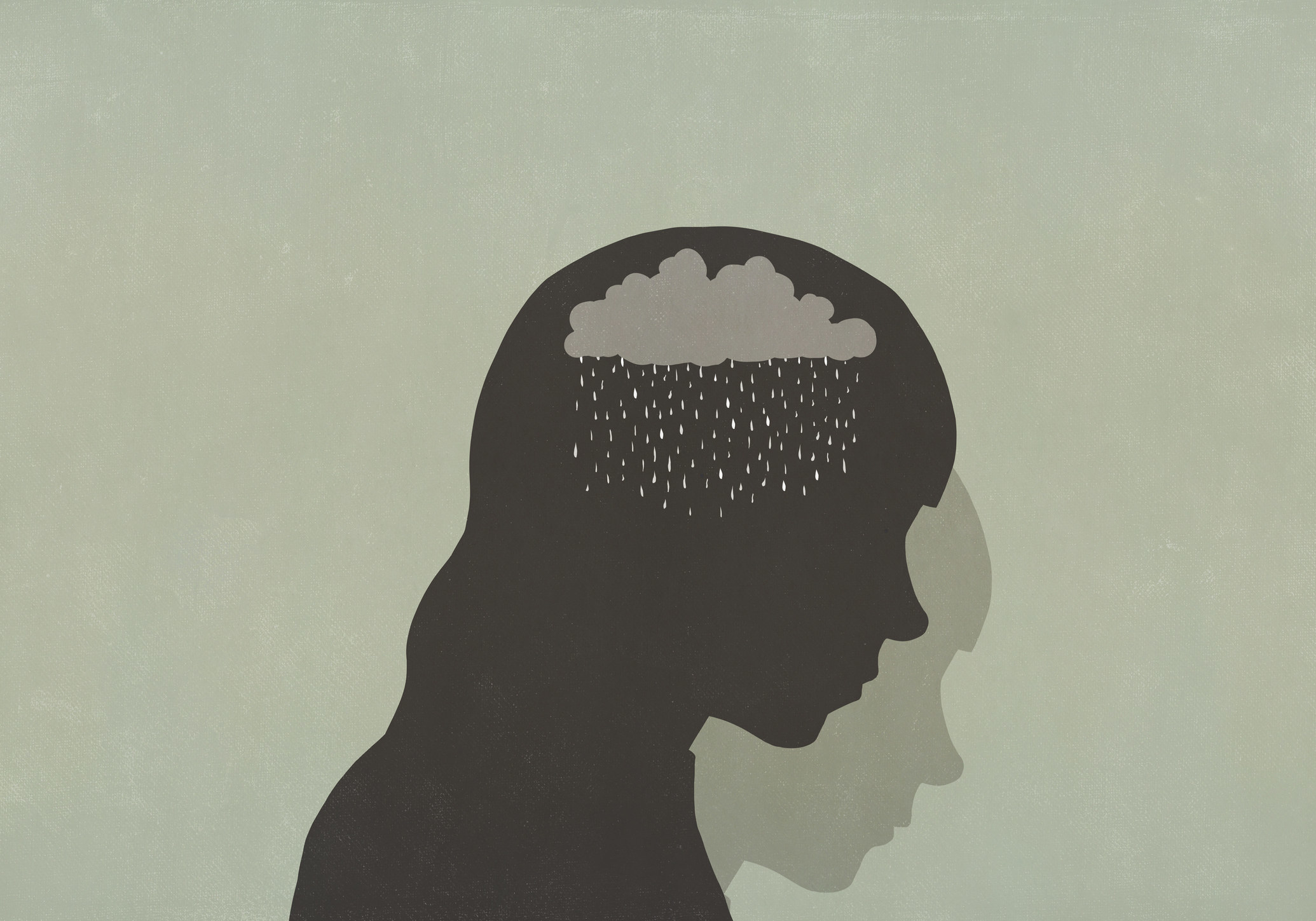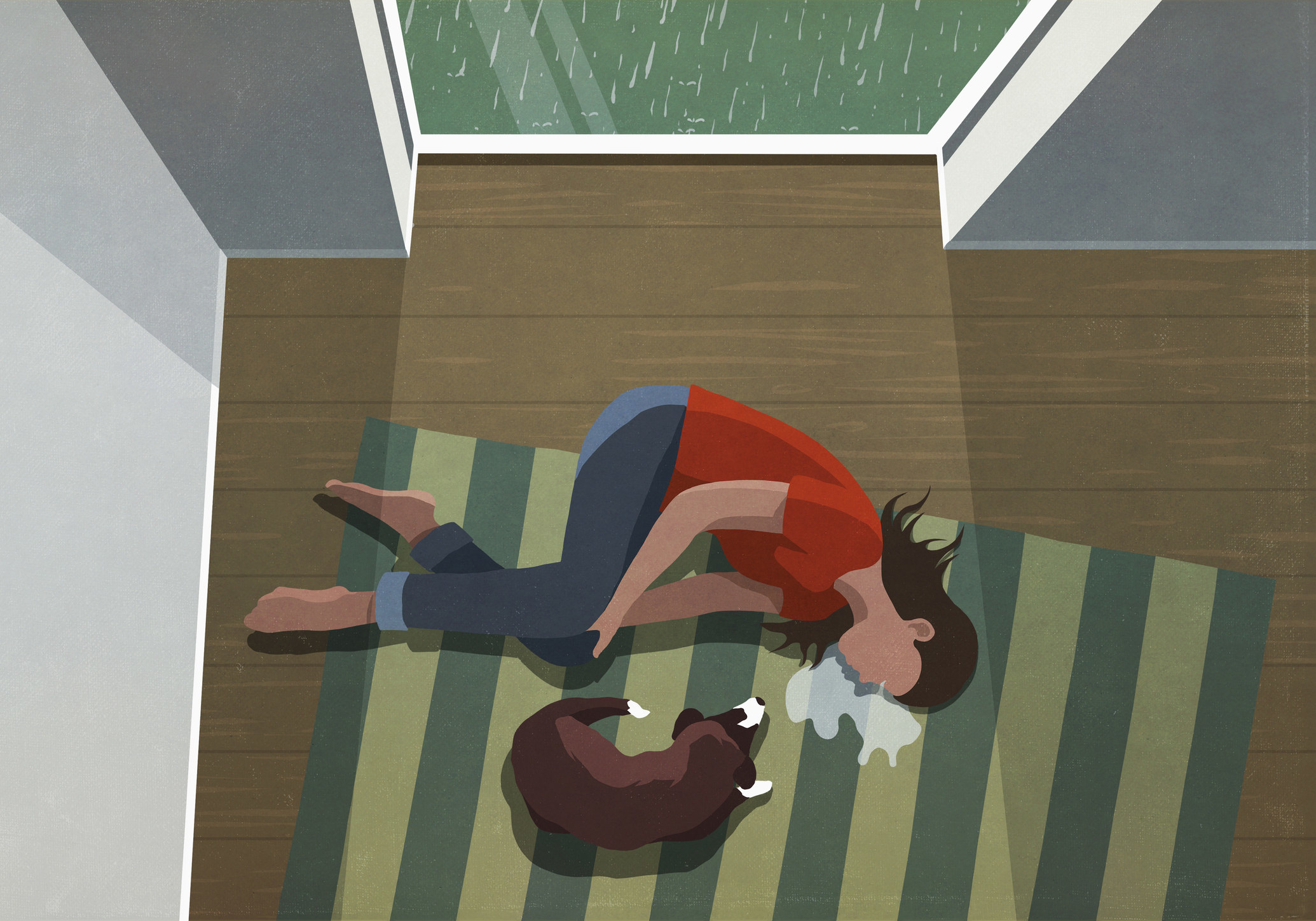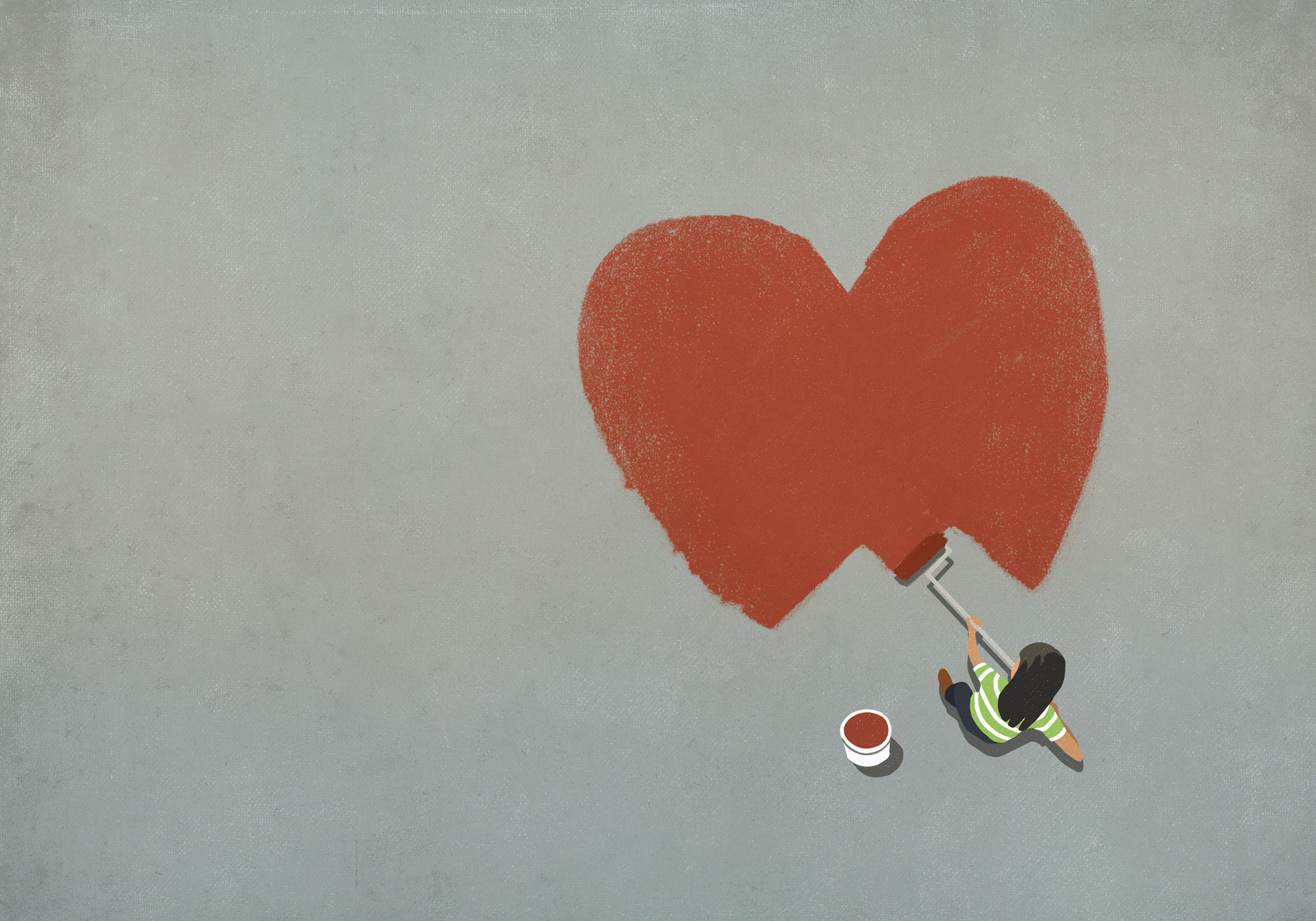Losing a pet is hard and, sadly, something that's not commonly talked about or given much consideration, particularly by other people. And the grief pet owners experience after their beloved dies is often hard to navigate, especially when people tend to brush off your feelings.
This is where cat behavior and wellness expert Jackson Galaxy steps in. (You may know the popular cat daddy best for his iconic Animal Planet show My Cat from Hell, which, if you haven't seen it...10/10 highly recommend!)
In a recent virtual seminar for Jackson Galaxy's Cat Camp, Galaxy teamed up with animal companion loss recovery specialist Stephanie Rogers for a chat tackling this subject with "You're Not Going Crazy, You're Grieving." Here's what the experts had to say:
1. When you grieve, it opens the door. You don't grieve just one loss.
Galaxy explained that when his cat Lily died earlier this year, he also grieved for his mother. "We never grieve just one loss," Rogers added.
2. Disenfranchised grief is a very real thing, and you'll probably experience it.
This is defined as "grief that a person experiences when they incur a loss that is not or cannot be openly acknowledged, societally sanctioned, or publicly mourned," explained Rogers. Think things like miscarriage, stillbirth, suicide, murder, and even COVID-19 deaths.
3. And all animal losses are disenfranchised because they're commonly minimized by others.
"They receive little or no public recognition, even sometimes by friends and family, and oftentimes they can't be openly mourned. They're not socially supported, they are dismissed, disparaged, or belittled," continued Rogers.
4. When you experience this kind of loss, that leaves you feeling especially isolated and alone.
"Animal companion grief is disenfranchised grief," said Rogers.

5. But know that you're not alone.
Rogers continued, "You aren't going to experience all of this pain, grief, and everything alone. You have an unseen net of people."
6. Remember that every creature you've ever loved and lost is still with you.
"The bond still exists. The bond does not die with the body," said Rogers.
7. And know that you're not "going crazy," neither are you "weak," "immature," or "overly emotional."
Rogers continued, "You're none of those things, you're grieving."
8. We grieve in direct proportion to how much we love.
"It doesn't matter what format love takes — if it's got scales, fur, or skin — it's the relationship, the love that we have, that defines the intensity of our grief," said Rogers.
9. And, just so you know, grief is defined as the internal feeling of loss. It's a process, not an event.
"Grief is what's happening inside you, that you may find very hard to express and to find words for," said Rogers.

10. And the process continues and goes on. It doesn't have a beginning, middle, and end.
"There is never going to be a time when you are 'OK' with the fact that your beloved being has died," explained Rogers. "That being said, it will not continue with the intensity you may be experiencing right now. That intensity might come back in 10 or 15 years, but it will change, it will continue to change throughout the course of your life," she continued.
11. Mourning, however, is the external expression of the internal experience.
"The most obvious mourning example there is, is crying. That's the external expression of the internal experience of grief. Other things are rituals, and they don't have to be big and elaborate. Another example is sharing stories about those who've died," said Rogers.
12. And bereavement is actually the state of being in grief and mourning.
"Bereavement is sometimes associated with time, especially in cultures that still have societal mourning rituals," Rogers explained.
13. You may even experience compounded, or cumulative, grief.
"It really happens when we experience multiple losses that happen faster than we can process them. And when that happens, we don't have enough bandwidth to process them and that includes the re-grieving of past losses," said Rogers.
14. There is even something called collective grief, and we're all going through it right now.
"The definition of collective grief is when a community, society, a city, or nation, or the entire world collectively experiences an extreme change or loss." Rogers continued, "When you're living in a time of collective grief, like we are now with the COVID-19 pandemic, that means that we're grieving a living loss, one that keeps going, that we really can't see the end in sight to. So there's a level of stress and trauma that goes along with that. And any individual grief that we experience during a time of collective grief, automatically becomes compounded grief."

15. And it may be hard to hear, but there is nothing to be "done" about grief.
"What we have to do is to change our focus from 'getting over' grief to understanding it as a transformational life experience," said Rogers.
16. One thing you CAN do is embrace grief.
"First, you acknowledge the enormity and the intensity of the loss, and you do that by remembering that we (as mentioned earlier) grieve in direct proportion to how much we loved," Roger continued. "So you acknowledge that if you love big, your grief is going to be big."
17. And a helpful exercise is to sit down, think about what you lost, and write down "this is who/what I have lost..."
"I call this 'name and claim a loss,'" said Rogers. "Remember that losses are not always just living beings. When you make this list, you may start with your most recent loss, but you want to go back, and you don't want to overthink this, you want to just free-flow write this out."
18. Then ask yourself, "How has my world changed?" as a result of this loss...
Rogers continued, "When you have the courage to sit down and embrace your grief and look at it, you're going to find that the changes are not always negative."
19. ...and also, "How can I incorporate this loss into my life? How can I best honor who and/or what I have lost?"
Remember that it's not, "'How can I get over?', 'how can I let go?', 'how can I move on?' That is not what grief is about," said Rogers.

20. Remember that self-compassion is key.
"You need to treat yourself the way you'd treat someone you love," said Rogers.
21. And try to practice mindfulness, to be in the "now."
"Rather than speculating about the future, or longing of the past, or beating ourselves up for the past — 'now' is always where 'normal' begins," said Rogers.
22. A quick way to get to "now" is through focused breathing.
"Breathing focused lowers your heart rate and blood pressure and allows more oxygen into the blood, which means your thought processes are clearer," explained Rogers.
23. And finally, know that the mind would rather feel guilty than helpless.
Rogers explained, "In the whole time that you're miserable, down that rabbit hole, in your mind, there's a fantasy in which your beloved animal is still alive. One of the biggest tasks in the grief process is to make the death an actual reality. It's a slow process. The rational mind knows a death has happened, but to get all the rest of us to understand — what we do not want to be real — that's a long process."
